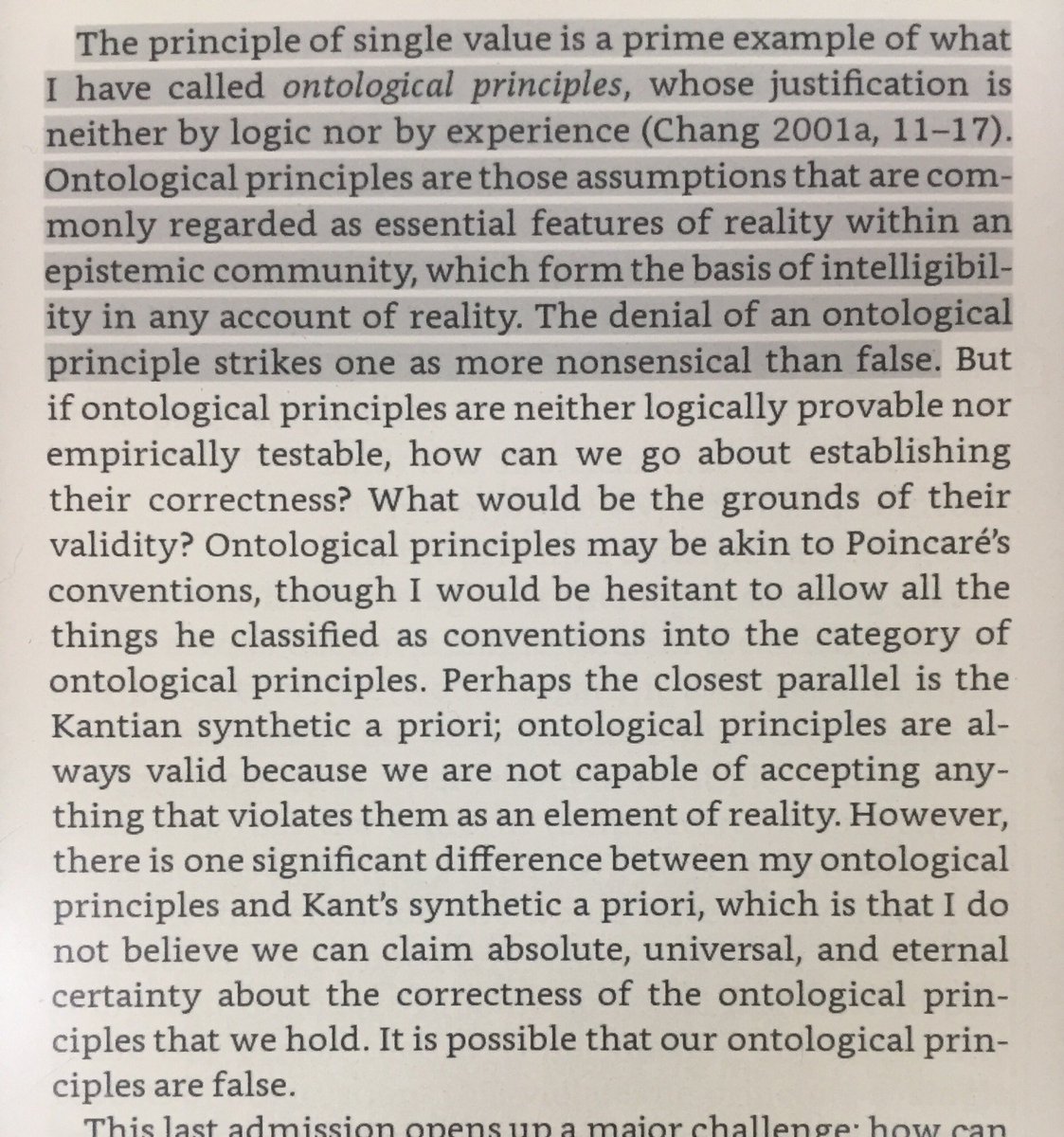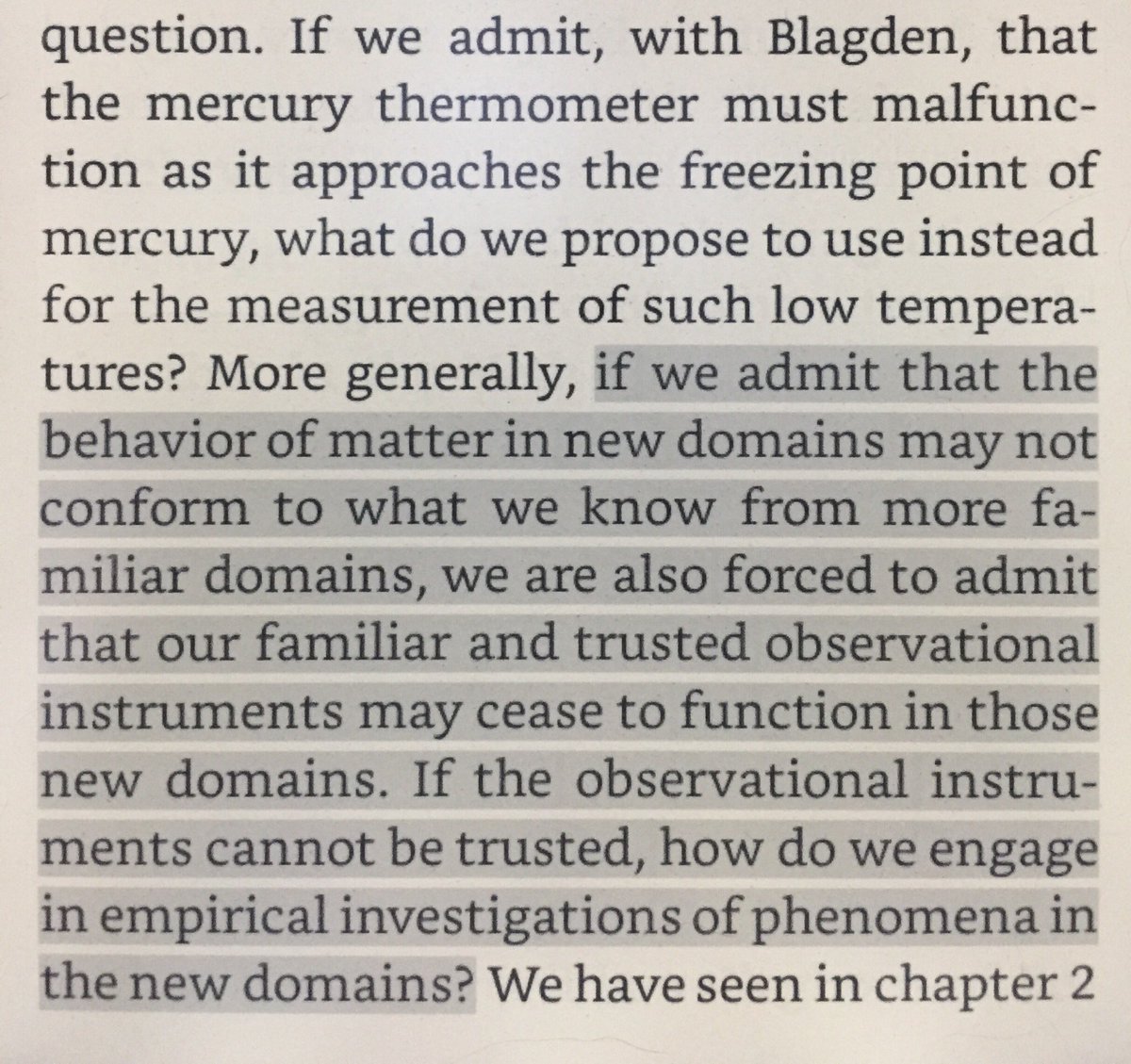Started reading this book by Hasok Chang and I’m immediately drawn in: “It is neither desirable nor any longer effective to try bullying people into accepting the authority of science. Instead, all members of the educated public can be invited to participate in science”
“Doing science ought to mean asking your own questions, making your own investigations, and drawing your own conclusions for your own reasons.” This quote appeals to me on so many levels—likely beyond what Chang has intended.
Oh my, preach! “the cutting edge is not all there is to science, nor is it necessarily the most valuable part of science. Questions that have been answered are still worth asking again”  https://abs.twimg.com/emoji/v2/... draggable="false" alt="🙌" title="Raising hands" aria-label="Emoji: Raising hands">
https://abs.twimg.com/emoji/v2/... draggable="false" alt="🙌" title="Raising hands" aria-label="Emoji: Raising hands">
self-correction as the result of epistemic iteration and a process property—this is how I view it as well and why I struggle with the immediate version that I see being used today
on the historical difficulties in measuring temperature consistently for lacking fixed points... and taking a moment to think what that means in the context of measuring behavior.
Almost this reads like a thriller so exciting! The Royal Society trying to establish the upper fixed point of the thermometer but struggling with different factors changing the boiling temperature of water. How do you know if a proposed fixed point is fixed w/o proper instrument?
“De Luc had started his inquiry on boiling by wanting to know the temperature of true boiling; by the time he was done, he no longer knew what true boiling was.”
Wow if that feeling isn’t deeply familiar, Idk what is. Fascinating how predictable this pattern is in research.
Wow if that feeling isn’t deeply familiar, Idk what is. Fascinating how predictable this pattern is in research.
Isn’t this just marvelous? The experimenter takes care to control all external factors to nail down the quantity of interest with precision but the solution boils down (forgive the pun) to not caring too much  https://abs.twimg.com/emoji/v2/... draggable="false" alt="🤯" title="Exploding head" aria-label="Emoji: Exploding head">
https://abs.twimg.com/emoji/v2/... draggable="false" alt="🤯" title="Exploding head" aria-label="Emoji: Exploding head">
Finally after a long await I’m back to Chang’s marvelous book. Just read this sentence: “Twenty-five years later Marcet tested the adhesion hypothesis more rigorously.”
Reminder that science is not instantaneous and we’ll lose perspective if we don’t look at the whole process.
Reminder that science is not instantaneous and we’ll lose perspective if we don’t look at the whole process.
“After a century of refinement, then, it was clear that boiling itself was irrelevant to the definition or determination of the ‘boiling point.’”
The process of scientific discovery is nonlinear, imperfect, difficult, and very slow.
The process of scientific discovery is nonlinear, imperfect, difficult, and very slow.
A beautiful reflection on the research endeavor and a condemning commentary on our myopic interests.
“In the narrative, I paid little attention to the question of how it is that the fixity of a proposed fixed point can be assessed because the scientists themselves did not discuss that question extensively.” >> Mirrors my observations on scientists to some extent.
“standards are not God-given. They must be justified and validated, too—but how? Are we stuck with an infinite regress in which one standard is validated by another, that one is validated by yet another, and so forth?”
“How do we know we can trust sensation? From ancient times, philosophers have been well aware that there is no absolute reason for which we should trust our senses.”
“As Ludwig Wittgenstein puts it: ‘At the foundation of well-founded belief lies belief that is not founded.’” >> How many times one ends up here when thinking something through and following an idea to its core!
Not a perfect answer to the dilemma above but an answer nonetheless. At some point acceptance, and not skepticism, is our friend it seems.
“Progress comes to mean a spiral of self-improvement if it is achieved while observing the principle of respect. Investigations based on the prior standard can result in the creation of a new standard that improves upon the prior standard. Self-improvement is possible only
because the principle of respect does not demand that the old standard should determine everything. Liberality in respect creates breathing space for progress.”
This quote above gives me a lot of food for thought. Principle of respect is something we need to infuse more of into scientific discourse today, especially into discourse regarding scientific reforms. Just like new standards are emerging from old ones that we’re dissatisfied
with, newer ones will need to emerge from the current ones but we need to leave that breathing space for progress and stop demanding that the new standards determine everything to come after this.
Chang provides his own answer to how we create knowledge when the chain of justification does not work to our favor: Epistemic iteration
“Epistemic iteration is the process in which successive stages of knowledge, each building on the preceding one, are created in order to enhance the achievement of certain epistemic goals.”
Chang notes that epistemic iteration is different from mathematical iteration in the sense that it doesn’t often approach to a known or knowable correct answer. Also:
This section below captures why I relate to Chang’s view of scientific process (and progress) so much: The immediate goal of epistemic iteration is rarely approaching the truth. There are other objectives that we may be able to assess progress toward and actually achieve.
After a break much longer than planned, I’m continuing this thread on Chang’s book. Chang suggests that strict empiricism is not sufficient to build scientific knowledge but we’ll investigate how far it can take us.
Best path, Chang says, is laid out by Regnault. “His empiricism comes down to an insistence that empirical data will not be acquired by means of measurement procedures that themselves rely on hypotheses that have not been verified by observation.”
 https://abs.twimg.com/emoji/v2/... draggable="false" alt="🔥" title="Fire" aria-label="Emoji: Fire">
https://abs.twimg.com/emoji/v2/... draggable="false" alt="🔥" title="Fire" aria-label="Emoji: Fire"> https://abs.twimg.com/emoji/v2/... draggable="false" alt="🔥" title="Fire" aria-label="Emoji: Fire">
https://abs.twimg.com/emoji/v2/... draggable="false" alt="🔥" title="Fire" aria-label="Emoji: Fire">
So what does it mean to make observations? Van Fraassen has a very strict view of what counts as observable (perceivable by unaided human senses) and insists that science should not engage with unobservables.
Maxwell, otoh, argues that any observable-unobservable boundary moves through scientific progress.
Chang aims to reconcile these views without undermining Van Fraassen’s point and proposes: Observability is an achievement. Relevant distinction is not between what’s observable-unobservable to humans but between what we can vs. cannot observe well.
And he defines observation as “reliable determination from sensation.” So it’s not enough that something derives of our senses; it needs to be obtained by a reliable process too.
“Observability is neither dichotomous nor completely continuous; it progresses, improving continuously in some ways, but also in distinct stages with the successive establishment of distinctly different kinds of standards.”
Last thoughts before I fall asleep: So if we cannot even talk about observables or observation in the absence of reliable measurement procedures, what is it that quantitative social sciences are doing under ubiquitous measurement error? (Not unrelated to my own research.)
I really love this short section about the difference between what’s a “logical” versus “physical” principle. Read it three times. Will be thinking about it some more. There’s an insight there that’s escaping me but hope it’ll click eventually.
LOL this sounds too familiar. What percentage of twitter debates are of this kind?  https://abs.twimg.com/emoji/v2/... draggable="false" alt="😂" title="Face with tears of joy" aria-label="Emoji: Face with tears of joy">
https://abs.twimg.com/emoji/v2/... draggable="false" alt="😂" title="Face with tears of joy" aria-label="Emoji: Face with tears of joy">
“It is possible that our ontological principles are false.”
This is honest writing. I love that there’s no handwaving or pontificating. It’s deeply humble and I think that’s why it appeals to me so much.
This is honest writing. I love that there’s no handwaving or pontificating. It’s deeply humble and I think that’s why it appeals to me so much.
A solution: Minimalism—a realist strategy that builds or isolates a compact system of nonobservational hypotheses that can be tested clearly. So we want to contrive overdetermined situations on the basis of minimal assumptions/auxiliary hypotheses.
Minimalism goes against the conventional wisdom (theory-ladenness of observations will produce vacuous confirmation of that theory) bec it recognizes virtue in circularity.
Unlike what Popper’s sentiment that “it’s easy to obtain confirmations, or verifications, for nearly every theory—if we look for confirmations,” there’s no guarantee that observations made under a particular theory will always validate that theory.
Hence there is no clear reason to wish for theory-neutral observations or independence between the theory of the instrument and the theory to be tested by the observation produced by the instrument.
This does not mean that minimalism does not have limitations or is always the best policy. There is no guarantee that minimalist testing will lead to the emergence of a clear winner (or discovery of truth).
So the first two chapters covered establishing fixed points & a numerical scale toward measuring temperature. That’s abt a century & a half. Compare that with scale development in social sciences. Yeah. No. Don’t.
Ch 3 will explore thermometers that melt and freeze themselves.
Ch 3 will explore thermometers that melt and freeze themselves.
Fascinating story below. An early thermometer recording -120F for the first time. Irrefutable, by scientific standards of the day!
Turns out Gmelin’s thermometer itself froze and shrunk, starting to record much lower temperatures than actual, as was explained 30 years later.
Turns out Gmelin’s thermometer itself froze and shrunk, starting to record much lower temperatures than actual, as was explained 30 years later.
Trivia: Delisle temperature scale was set at 0 ° at boiling point of water and increased with increasing cold, with freezing temp of water set at 150 ° Delisle!
I love how we take one PoV as given and never consider the alternatives sometimes.
I love how we take one PoV as given and never consider the alternatives sometimes.
Many scientists remained skeptical about the possibility of mercury freezing and chose to attribute new observations to issues regarding the purity of mercury used in experiments. Bentham used this case to show how our willingness to believe is tied to familiarity.
Chang says: “this immediate problem of simple prejudice could be solved by sufficient experience, or even be prevented by a healthy dose of open-mindedness or theoretical daring.”
Today I see major resistance to all three & prejudices seem to persist but likely I’m being myopic.
Today I see major resistance to all three & prejudices seem to persist but likely I’m being myopic.
In other words: “When the best available standard fails, how do we create a new standard, and on what basis do we certify the new standard?”
Btw this whole history (of measuring temperature) is also an amazing case study on open science. Everyone scrutinizes each others’ experiments, recordings, data, analysis, results to get to the bottom of the problem. The scientific MO of the time appears to have been open!

 Read on Twitter
Read on Twitter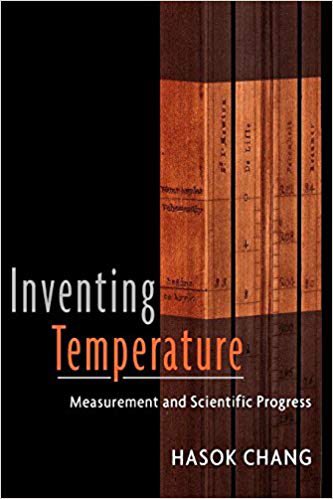
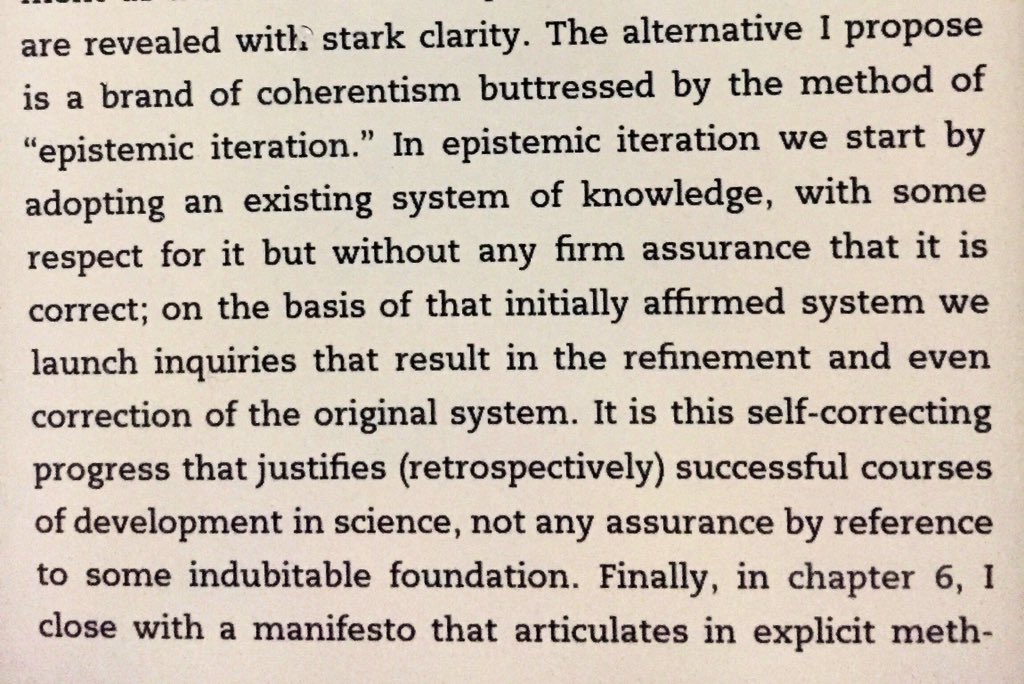
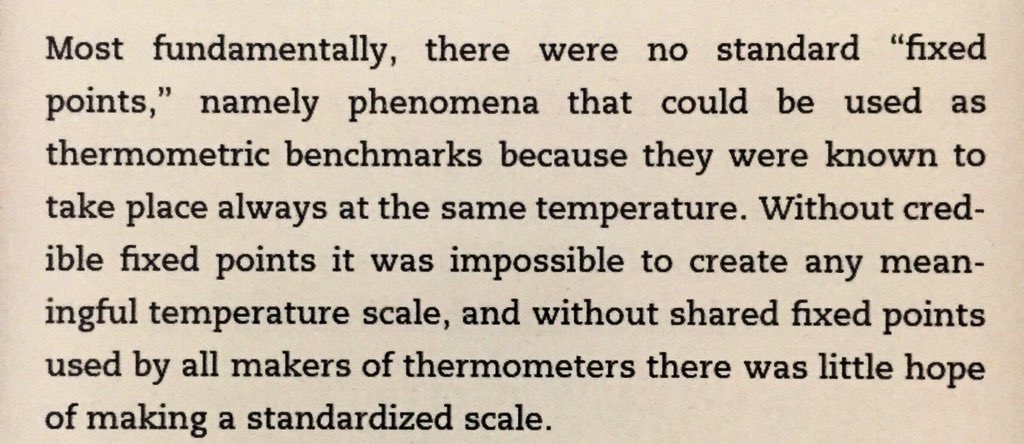


 " title="Isn’t this just marvelous? The experimenter takes care to control all external factors to nail down the quantity of interest with precision but the solution boils down (forgive the pun) to not caring too much https://abs.twimg.com/emoji/v2/... draggable="false" alt="🤯" title="Exploding head" aria-label="Emoji: Exploding head">" class="img-responsive" style="max-width:100%;"/>
" title="Isn’t this just marvelous? The experimenter takes care to control all external factors to nail down the quantity of interest with precision but the solution boils down (forgive the pun) to not caring too much https://abs.twimg.com/emoji/v2/... draggable="false" alt="🤯" title="Exploding head" aria-label="Emoji: Exploding head">" class="img-responsive" style="max-width:100%;"/>
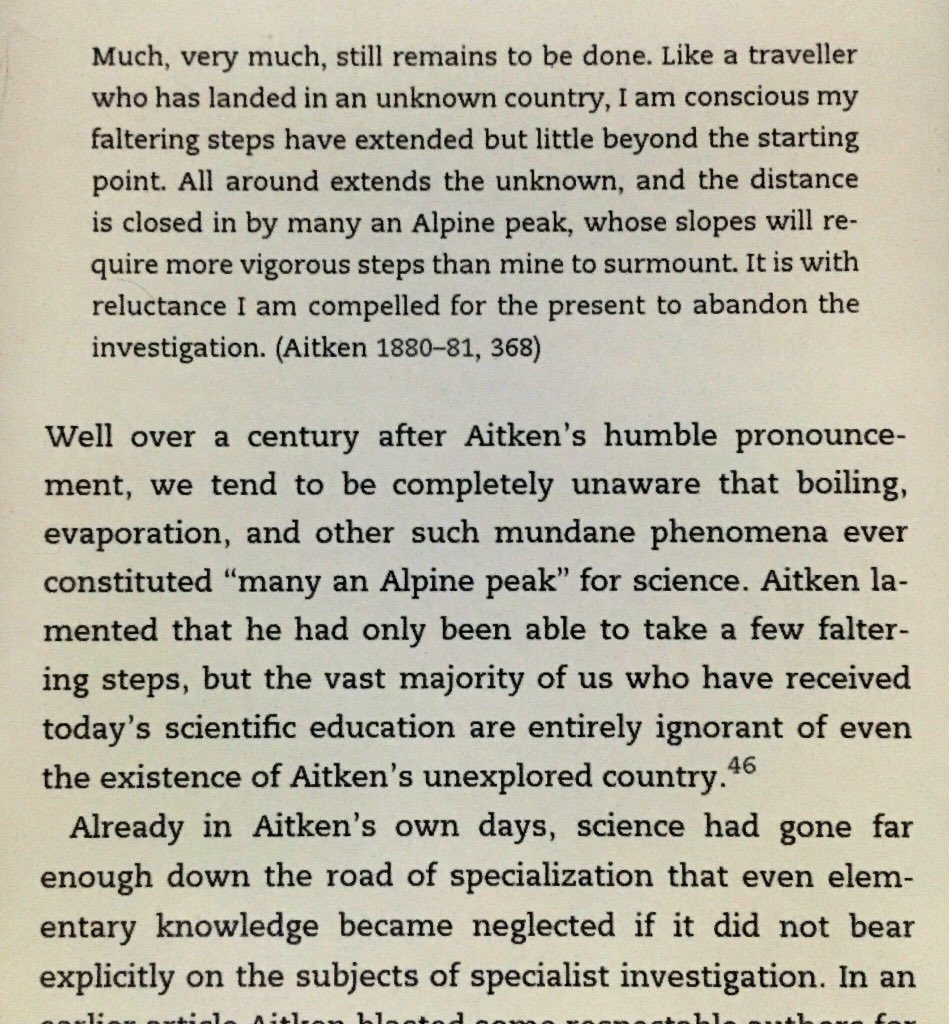
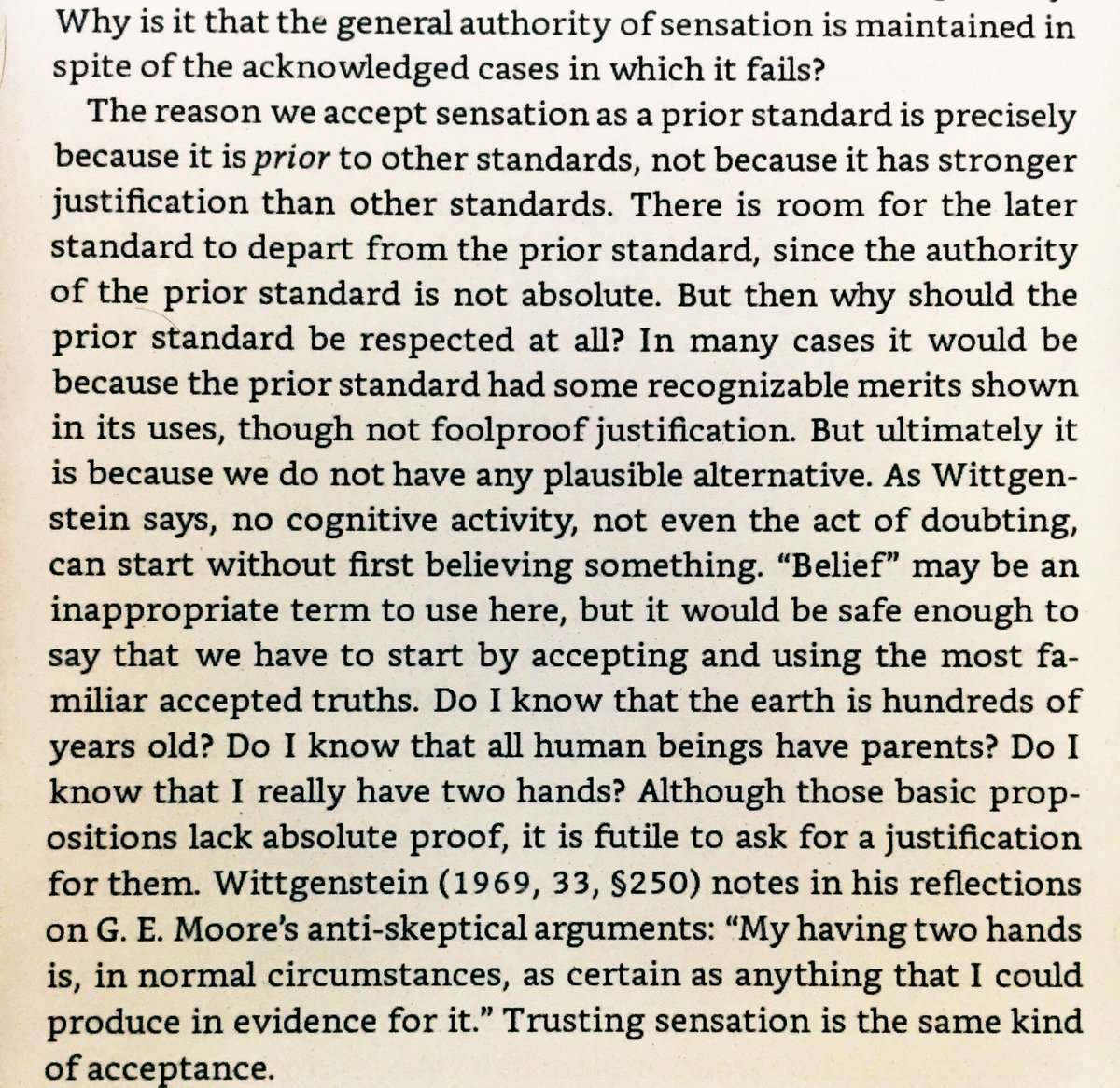


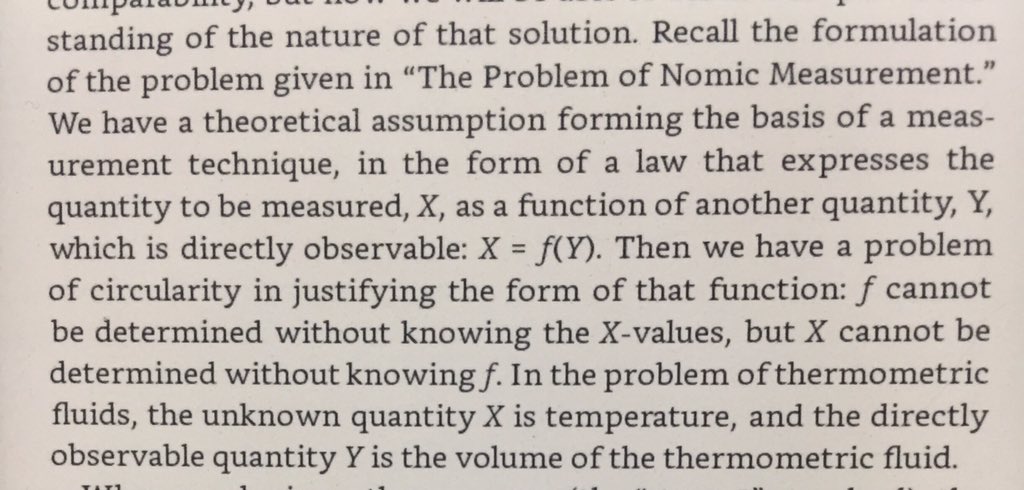
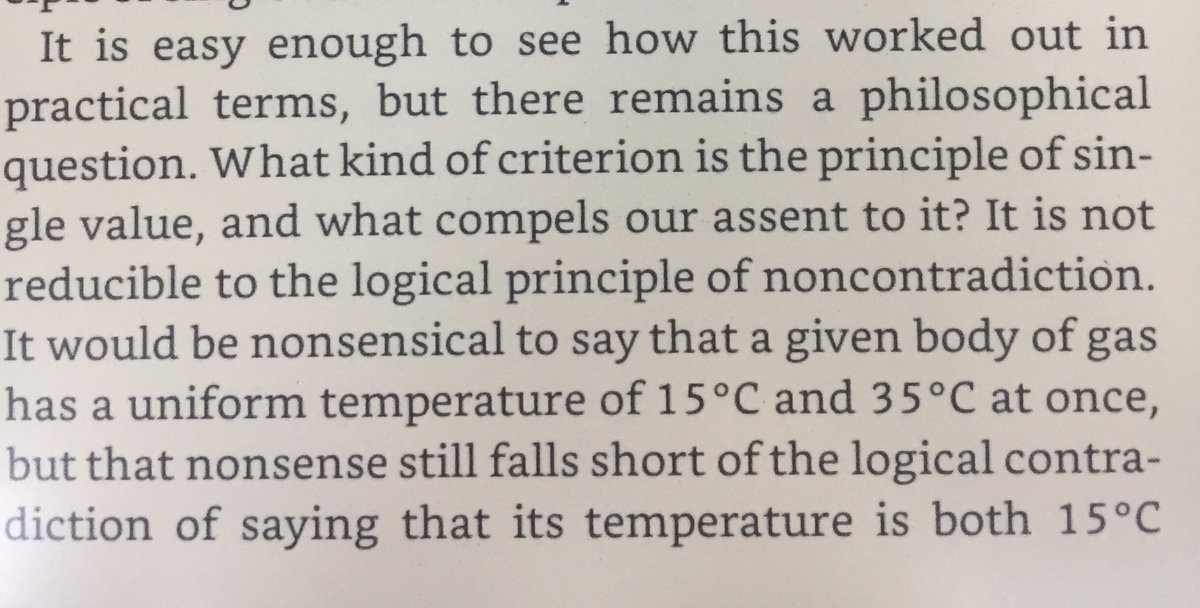
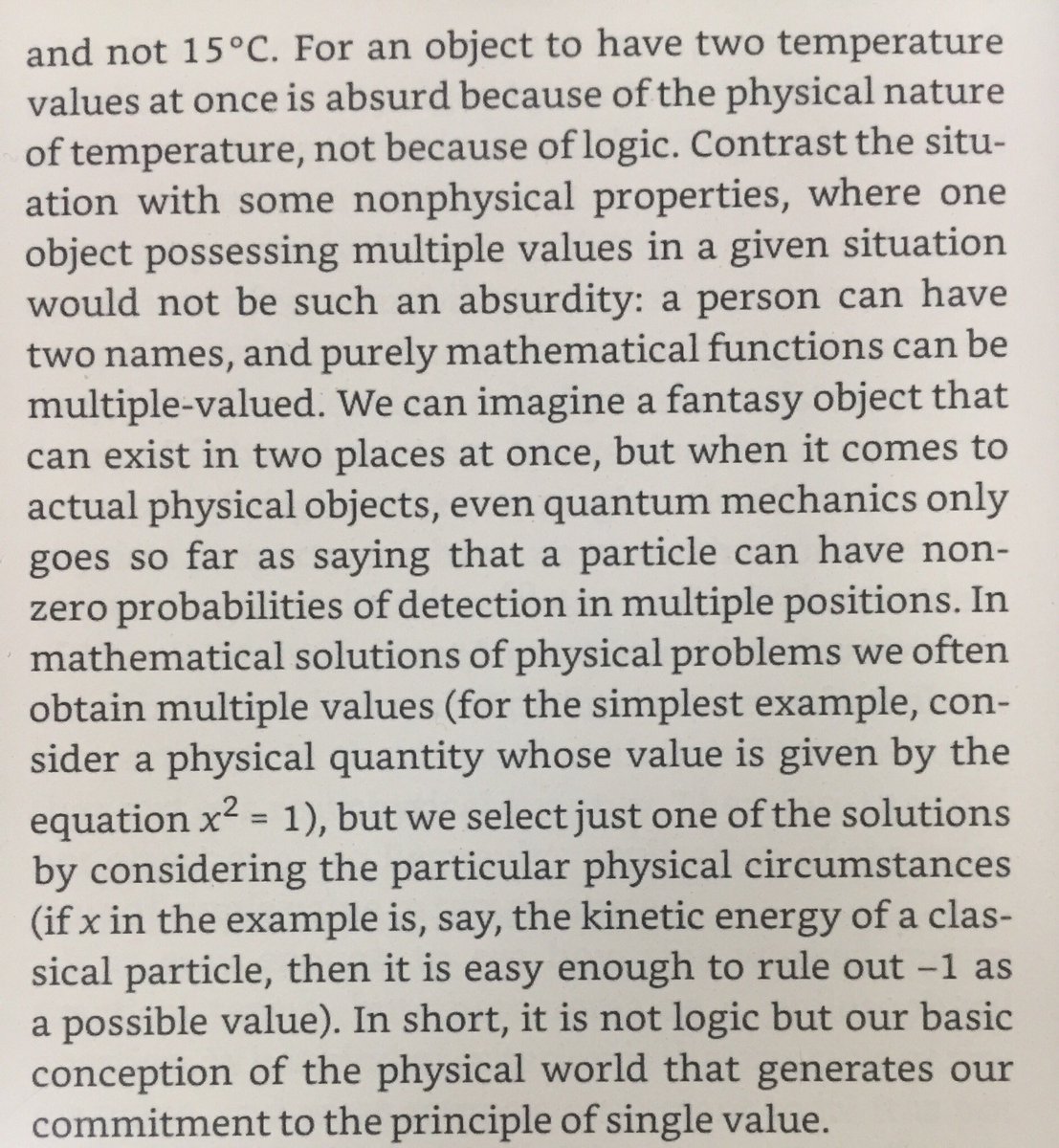
 " title="LOL this sounds too familiar. What percentage of twitter debates are of this kind? https://abs.twimg.com/emoji/v2/... draggable="false" alt="😂" title="Face with tears of joy" aria-label="Emoji: Face with tears of joy">" class="img-responsive" style="max-width:100%;"/>
" title="LOL this sounds too familiar. What percentage of twitter debates are of this kind? https://abs.twimg.com/emoji/v2/... draggable="false" alt="😂" title="Face with tears of joy" aria-label="Emoji: Face with tears of joy">" class="img-responsive" style="max-width:100%;"/>
